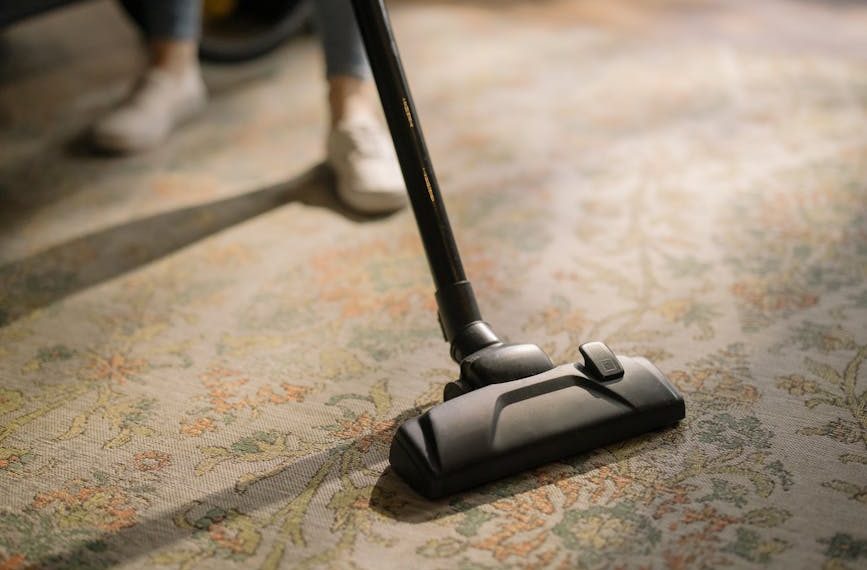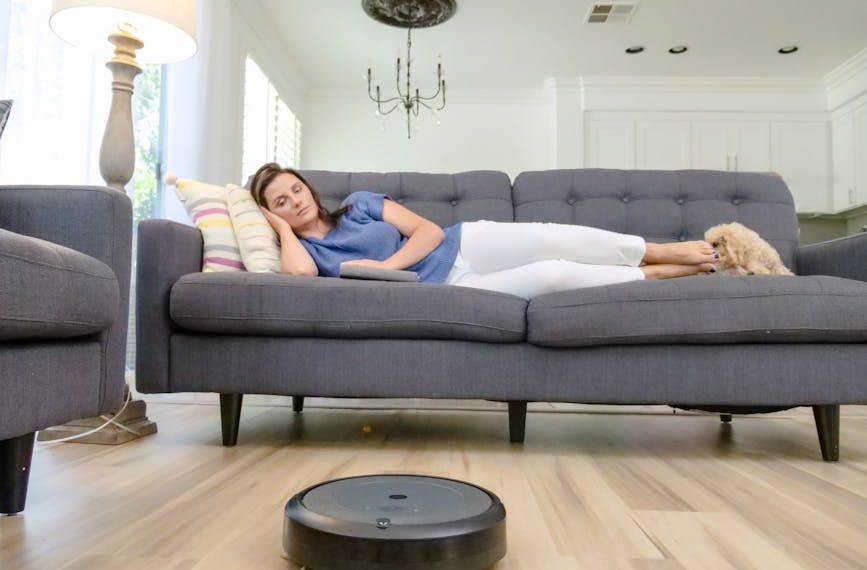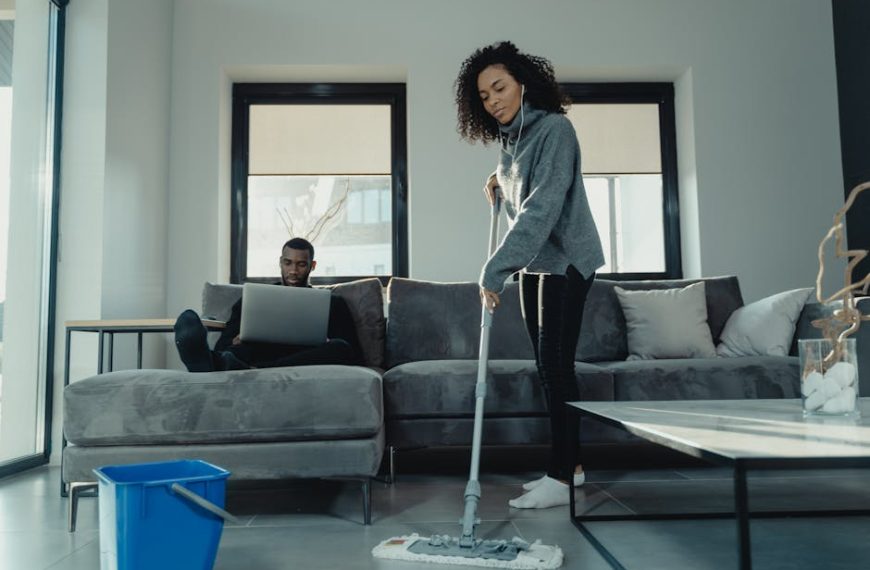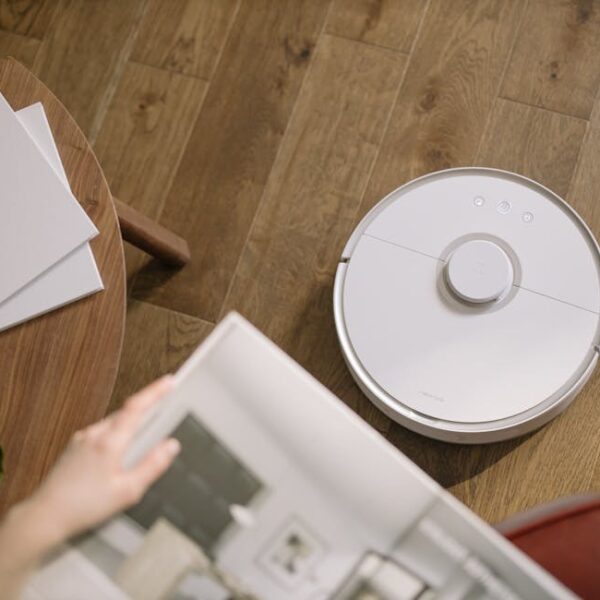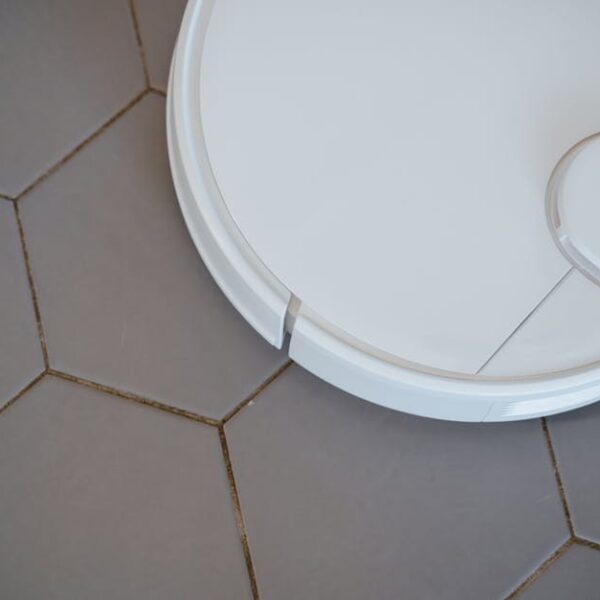Your Roomba helps keep your floors clean, but seeing it blink orange or flash red can leave you puzzled. The color codes emitted by the Roomba, a trusted companion in many contemporary homes, serve a crucial function. They act as a visual language, articulating any problems or needed attention. In particular, the colors orange and red indicate some hiccups.
Understanding Roomba’s Color Codes
Color coding is Roomba’s way of communicating. It’s a signal that something demands your attention. Specifically, a blinking orange or red light tells you there’s a problem demanding attention. The color and blink pattern varying, they may indicate different issues. An illuminated orange or red signal may mean the battery is low, the dustbin is full, or suggest a more severe malfunction.
Decoding a Blinking Orange Light on Roomba
Now, let’s dive into what a blinking orange light actually means for your Roomba. Orange light, blinking in patterns, indicates diverse scenarios.
One blink indicates low battery, requiring an immediate charge. If it blinks twice, the battery is completely out, and the Roomba is in critical need of power.
Roomba’s performance gets affected significantly in such cases. A drained battery can restrict your Roomba’s cleaning cycle and impact its efficiency over time. It’s a borderline issue, requiring your immediate attention but is often rectifiable at home.
Decoding a Flashing Red Light on Roomba
Whereas an orange light indicates power-related issues, a flashing red light on Roomba denotes a more significant problem. For instance, a single flash suggests a wheel issue, while a double flash indicates a brush or motor problem.
These issues not only halt Roomba’s cleaning cycle but may also suggest a severe core system malfunction. These cases demand immediate and more thorough attention and check-up.
Basic Troubleshooting Steps for a Blinking Orange or Red Light
Right! It’s important to try basic troubleshooting strategies even before you take your Roomba to a professional. For instance, if your Roomba is blinking orange, placing it on the charger could solve the issue.
However, a flashing red light may require more advanced problem-solving steps. This could range from cleaning the brushes and resetting the unit to verifying whether the wheels are turning without any hindrance.
Remember, these steps might not work in every situation, but they can save you some time and possibly expense before you resort to professional repair services.
All these troubleshooting practices offer a quick triage to the issues associated with a blinking orange or red light on your Roomba. In addition, they provide a preliminary diagnosis, helping in addressing minor problems and efficiently identifying bigger ones.
When to Seek Professional Help for a Blinking Orange or Red Light
While basic troubleshooting can rectify several issues causing your Roomba to flash orange or red, not all problems can be resolved at home. Certain complications demand professional expertise, particularly when the issues persist or recur after you’ve exhausted all known solutions.
Situations demanding professional assistance can include failure to power up despite charging, persistent wheel, or brush issues despite thorough cleansing and resetting. Attempting to fix such issues yourself could risk further damaging your device and even void your warranty.
Cost Comparison: At-home Troubleshooting vs. Professional Repair Services
| Aspect | At-home Troubleshooting | Professional Repair Services |
|---|---|---|
| Cost | Minimal to none (excluding any potential parts replacement) | Repair costs vary on a case-by-case basis |
| Time | Immediate to a few hours | Dependent on the complexity of the issue and servicing schedule |
| Skill Level Required | Basic knowledge or DIY skills | Professional expertise and experience required |
| Tools Needed | Common household tools, online resources | Specialized tools and equipment |
| Warranty/Guarantee | Typically no warranty on DIY fixes | Often comes with a warranty or guarantee on repairs |
| Follow-up Support | Limited; relies on self-help resources | Usually includes follow-up support or consultation |
| Risk of Further Damage | Low to moderate, depending on the issue | Minimal, as professionals are trained to handle repairs |
| Convenience | High; can be done at any time | May require scheduling and travel time |
This comparison aims to help you decide whether to opt for at-home troubleshooting or taking your Roomba to a professional repair service. Aside from cost and time, consider factor such as your comfort around attempting the suggested fixes, and the severity of the issue your Roomba is indicating.
Seeking Professional Help: Pro Tips
To ensure the best results, prefer authorized service centers.
Document Roomba’s behavior. Record the blinking pattern, number of blinks, and what you’ve already tried to fix the issue.
Finally, patience is key. Some fixes might take longer, but the priority should be to ensure a thorough diagnosis and permanent rectification.
Whether your trusty Roomba is blinking orange or flashing red, understanding its tell-tale signals and actions can go a long way in effectively resolving the problems and ensuring its longevity. Remember, with the right care and attention, you can continue to rely on your Roomba for those pristine, spotless floors.
Key Takeaway:
- Roomba’s blinking orange and flashing red lights are signals indicating various issues, ranging from low battery to serious malfunctions.
- The blinking pattern and the color of the light provide specific clues to the problem at hand.
- Initial troubleshooting steps can be attempted at home, such as charging the vacuum or cleaning its brushes.
- For some issues, particularly those persisting after basic troubleshooting, professional help might be the best course of action.
Understanding your Roomba’s color codes is the first step towards properly maintaining your device. Remember, early identification and resolution of problems can save both time and expense in the long run, ensuring your reliable companion’s longevity.
FAQs
Q: How often should I charge my Roomba to avoid a blinking orange light?
A: It’s best to recharge your Roomba after each cleaning cycle to maintain its battery life. Consistency in charging can prevent the occurrence of a blinking orange light indicating a low battery.
Q: My Roomba’s red light keeps flashing even after troubleshooting. What should I do?
A: If the problem persists despite your troubleshooting efforts, it’s time to seek professional help. The flashing red light could indicate a more serious issue that requires expert attention.
Q: What other preventative measures can I take to avoid seeing a flashing red light on my Roomba?
A: Regular maintenance is crucial. Ensure to clean the dustbin, brushes, and wheels frequently. This way, minor problems can be nipped in the bud before they result in a flashing red light.
Q: Do all Roombas utilize the same color-coding system?
A: While most Roomba models use a similar color-coding system, it’s always best to refer to your specific model’s manual for accurate interpretation of signal lights.
Q: Can I fix all problems associated with a flashing red light on my Roomba at home?
A: Some issues, such as cleaning the brushes or removing a stuck debris, can often be fixed at home. However, some problems, such as a deep-set malfunction, need professional attention. Always prioritize your device’s health over quick fixes.
If you found this article helpful, feel free to share it and explore more guides on our website.


